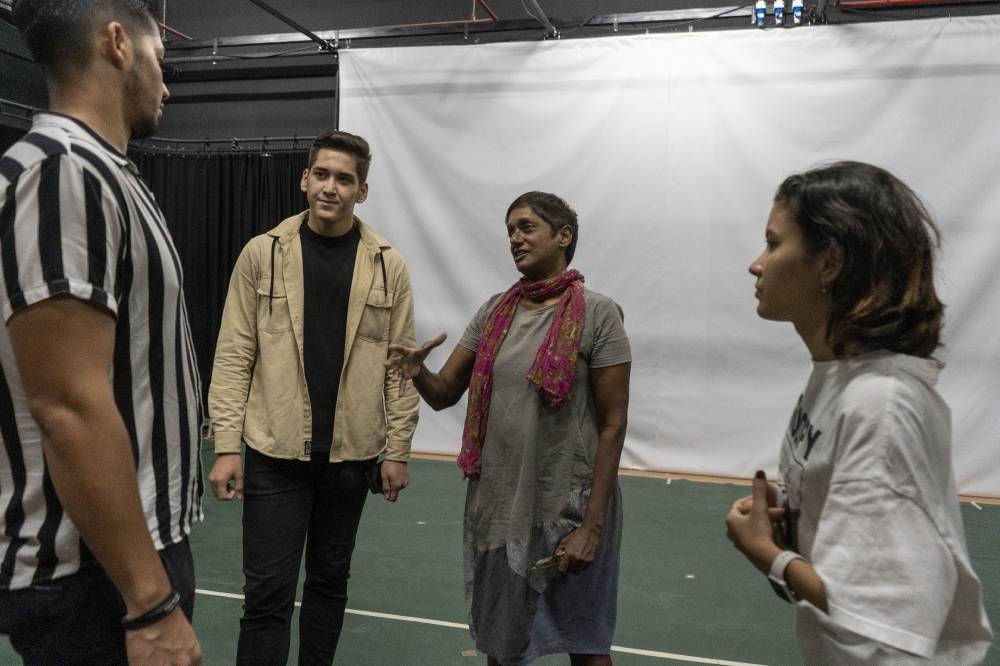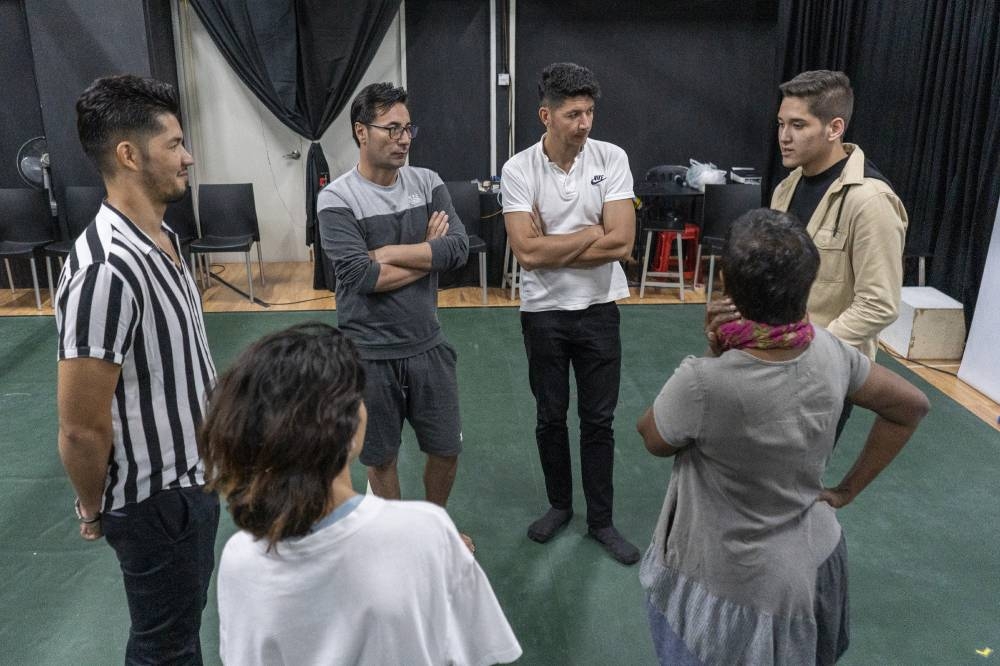PETALING JAYA, July 13 — For Afghan playwright Saleh Sepas, theatre is his ‘paracetamol’ or pain killer to battle the hardships of leaving his home country and living as a refugee in Malaysia.
Saleh, a refugee for the past six years started his own theatre Parastoo in 2017 said he felt demotivated when many of his countrymen were not that keen on art and theatre.
He recalled grappling in bringing the idea of theatre to his community as many of them were still coping with being separated from their families and couldn’t see art as a form of expression and escapism.
As a fairly new community-based refugee theatre, it also took time for other refugees to believe in the power of theatre and of Parastoo.
But now, he has a different story to tell with upcoming play And Then Came Spring where the theme touches on an important issue that has been on the rise in the Taliban-ruled Afghanistan — child marriage.
The play, to be staged this month, is the second part to Saleh’s first play Screaming in Silence that discusses the issues of child marriages in which he is both the playwright and director.
Child marriages — a prevalent issue in Afghanistan — has been something close to his heart and he usually gets his story ideas through his research or through his brother, who is based in Afghanistan.
Speaking to Malay Mail, he was surprised when many local refugees from Palestine, Syria, Myanmar and Rohingya communities were interested to be part of the play.
“In fact, many of them wanted to be part of the play as compared to Screaming In Silence as they’ve seen the works of Parastoo.
“Many of them have seen the works of Parastoo throughout the years and feel that they need to tell their hidden and untold stories and personal stories of them in their home country.
“I was glad to have a myriad of stories from these different refugee communities so that their voices could be amplified and many can know the struggles they face as women and as refugees.”
The play centres around an important theme of refugees being forced to flee their home country, the story of the protagonist Nazanin as she struggles with child marriage that take the audience from Afghanistan to another country.
“Characters of the story, especially the last part, were formed based on the experiences and real personalities of the actors.
“Jo Kukathas (dramaturg of the play) and I listened to them before we wrote anything.
“And I wanted a play where it would not just be focused on Afghan refugees but other refugees and to use their (refugee) languages to reflect the many struggles the many groups are facing in their new country.”
He added that he was glad to have partnered with local theatre group The Instant Cafe Theatre Company (ICT) so that they could provide acting skills to these refugees while having some Malaysians work as the stage management team and set builders.
“With ICT joining us, I could focus on solely directing and being the playwright.
“Before, I used to wear many hats such as set designer, costume designer and stage manager, this time I’m just a director and can focus on the script,” he said.
From friendship to partnership with The Instant Cafe Theatre
When The Instant Cafe Theatre artistic director Jo witnessed a powerful poetry reading by some refugees in 2018, she was moved by the message and wondered why many Malaysians were not present to watch the show.
She also met Saleh that year and the duo decided to work on And Then Came Spring, initially supposed to be staged in 2020 but had to be postponed due to the Covid-19 pandemic.
Throughout the lockdowns, the duo forged a friendship and had been working on the script of the play over many Zoom meetings and phone calls.
“We have visited each other’s homes — I’ve met Saleh’s family and it’s just a wonderful experience to be able to connect to another theatre director.
“I also felt a lot of empathy when Saleh shared his side of the story as a refugee and Persian-language director — and how he has been using theatre to change his society.
“This friendship is important to me because it shows that we can forge relationships with people — whether they are refugees or not and to the extent of working with them too,” Jo told Malay Mail.
She shared that even when she came back to Malaysia after so long, she had encountered her share of racism and turned to theatre to spark conversations about the many injustices and inequalities she faced.
“Like Saleh, I felt compelled to do something about the oppression I went through — and turned to theatre for that.
“And it’s also easy to talk to Saleh — I feel like we think alike and can connect to each other — and that’s a good feeling,” she said.
For And Then Came Spring, Jo who takes on the role of a dramaturg and acting coach, recalls that one thing she learnt is that she needed to be open about changes in the script.

While Saleh is the main playwright, she writes a part of the play which is towards the end of the show.
She explained that one of the Myanmar refugees was initially keen on being a part of the play but wasn’t sure she could do it because of transport issues to the rehearsal space.
“After meeting her, I went straight home to change the script but she then told me she wasn’t able to make it due to transport issues.
“Initially, I felt disappointed but I knew that I had to be open as this was a community theatre.
“Luckily, we managed to work things out and she said that she could act — she’s been a great addition to the play,” she said.
Another Myanmar woman, fluent in languages such as Malay, Burmese and speaks Hindi and Urdu whom Jo described as a “big hearted” was also roped in the production.
“I felt this contagious energy when talking to her and hugged her because of how jovial and bubbly she was.
“I was glad that this particular Burmese woman got to be part of the play so that people can know them and hear their voices — and to know the discrimination they’re facing as well.
“In a nutshell, the play marks two important issues — of child marriage and the collaboration that has come to fruition between ICT and Parastoo,” she said.
Theatre of the Oppressed medium to spark conversations about the refugee crisis
Getting the audience to talk about the refugee crisis is what both Saleh and Jo hope to get the message across to the audience through the play.

Using Theatre of the Oppressed, an interactive theatre intended to transform lives as spectators become performers who act out solutions to the social problems presented through the play, the goal these playwrights are doing is to empower refugees and to be the voice of the voiceless.
Having different languages such as Persian, Arabic, Burmese to reflect the diversity of the refugee groups, English subtitles are also provided.
And Then Came Spring will be staged at the Damansara Performing Arts Centre (DPAC) from July 22 to July 24.
Malay Mail is media partner for the play.
Anyone interested in purchasing tickets to the show, can surf over here.






















